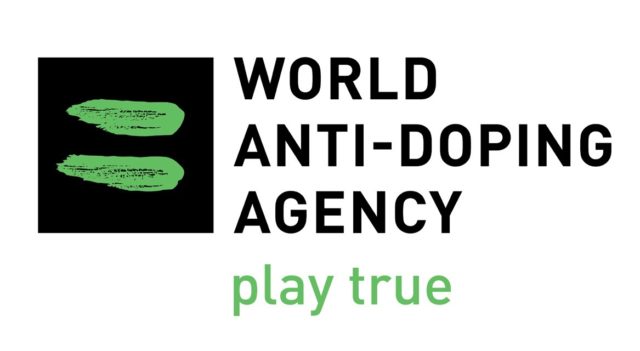By Ruth Beadle on SwimSwam

To start the 2024 Olympic year, the World Anti-Doping Agency (WADA) issued a warning and announced further investigations into allegations against the National Anti-Doping Organization of Spain (CELAD).
The allegations included a wide range of claims, including unregulated positives, under-regulated testing and results management, delayed time between finding positives and notifying athletes, and unsanctioned Athlete Biological Passports.
The allegations against CELAD were made by the Spanish online sports news site Relevo in a series of articles spanning.
WADA’s Warning
WADA president Witold Bańka said that WADA has been investigating the matter for some time, are aware of the “deep-seated issues,” and are following due process in their thorough investigation.
“I am disappointed with the level of cooperation we have received from CELAD as we seek to improve the system for Spanish athletes,” Bańka said. “… If they are not dealt with quickly and effectively, then it is clear there will be significant consequences for Spanish sport.”
The same day as WADA’s statement, Spain’s Higher Council for Sports asked for the director of CELAD, José Luis Terreros, to step down due to the “events and the reputational damage that Spanish sports and our system of [doping] control could face.” The council said that the Minister of Education and Sports and the council president would move to have him fired if he does not step down.
The head of the Doping Control Department, Dr. Jesús Muñoz-Guerra, was also the recipient of criticism from Relevo. His alleged involvement could prove significant, as Muñoz-Guerra was also just named as one of the experts of the IOC approved International Testing Agency’s Rio 2016 doping re-analysis testing project.
The warning by WADA is not the first in Spain’s history of Anti-Doping Organizations. After a year of non-compliance in 2016 due to a national political deadlock, WADA approved the revamping and current version of CELAD. Spain appeared again on WADA’s non-compliance list in 2021, though CELAD was cleared from the list due to updating their practices.
WADA’s statement addressing the allegations made by Relevo was released on January 5th. Here is a summary of the main points of WADA’s response to and the allegations against CELAD:
Unregulated Positives
In one of Relevo’s reports, they maintain that WADA knew of marathon runner national record holder Majida Maayouf’s unregulated positive test. Relevo alleges that the head of the CELAD Doping Control Department, Jesús Muñoz-Guerra, informed Maayouf of her positive results of banned substance terbutaline and suggested a retroactive medical exemption.
The rule for medical exemption that Relevo says covered the positive test was the Therapeutic Use Exemption (TUE). Due to a typing error to the granted permit, the initially authorized date would not have covered the time when Maayouf tested positive.
Relevo then says Muñoz-Guerra then corrected the detail to include up to a year before the positive case. Normally, the committee does not know that there has been a positive test when evaluating, but this time they knew due to alleged aforementioned prior informing.
Relevo maintains that WADA has cracks in its system on their control system to supervise positive tests.
In WADA’s response, they did not name specific cases or even Relevo by name. They simply refer to “recent media reports related to the allegations.” However, WADA maintained that they reject the idea that they would “turn a blind eye to any valid cases.”
The agency says they have throughly pursued all cases brought to them within the realism of the results management process and that some cases are still pending.
Testing and Results Management
Another allegation is that the director of CELAD, José Luis Terreros, and Muñoz-Guerra were aware of controls deliberately against Spanish regulations. Relevo maintains that controls had only one qualified agent present at drug testing instead of the mandated two.
Relevo also alleged that Professional Worldwide Controls (PWC), the company that carries out tests for CELAD, purposefully reduced agents as a way to save money knowing that Muñoz-Guerra would overlook this when approving.
WADA says that they have been aware of issues relating to testing and results management for several months as part of its compliance monitoring program. According to WADA, CELAD received a corrective action report from them that needed urgent addressing related to this issue.
Legislation and Implementation Issues
In a Royal Decree approved October 2023, article 29 of the regulation changed so that the sample collection team can have only one qualified doping agent.
Relevo says that the contract set for CELAD’s public prices for PWC was made in 2020, which means they should be operating with a budget for two qualified agents.
However, Relevo maintains that the current contract between CELAD and PWC modified the text to reflect what the “national regulations” requirement is, allowing the number of agents to be flexible for budgeting.
Relevo also says that CELAD did not update the 2020 regulations that set the budget for two agents instead of one, so CELAD will continue paying the price of two for one qualified agent.
WADA says that CELAD did not consult them on the non-conformities before the October 2023 royal decree amendment. In their statement, WADA maintains how they can reserve the right to request amendments to legislation when not applied correctly or in a conflicting manner with the World Anti-Doping Code.
The organization also says this could cause further compliance issues for CELAD in the next few weeks.
WADA expressed further questions for both CELAD and the anti-doping program in Spain, particularly with the 2021 law. WADA says they supported the passing of the legislation, but the interpretation and implementation of law is not in accordance with the World Anti-Doping Code.
Delayed Cases
Relevo also alleges that CELAD has allowed the maximum time of a year to pass between opening a case file against an athlete and communication.
In their article, Relevo tells the story of an unnamed national athlete’s positive test where they waited until the 365th day to notify the athlete by mail instead of electronically, so the athlete received the sanction after the deadline. The athlete appealed through the Sports Administrative Court which ruled in her favor because of the sanction communication outside the legal deadline.
Relevo specifically names a national team athlete Patrick Chinedu Ike’s lack of sanction on his 2019 test. They say that CELAD never opened the file or sanctioned the athlete, despite the positive result published to WADA’s ADAMS system.
WADA says that they specifically are pursuing CELAD on “apparently delayed pending cases.”
Athlete Biological Passports (ABP)
Relevo also says that Terreros said to the newspaper Marca at the beginning of 2022 that there are “five or six” cases of Athlete Biological Passports (APB) that are not sanctioned. ABPs are intended to track biological variables over time that indirectly reveal doping in an effort to combat target testing. Relevo says that there hasn’t been any change to the status of the ABPs in the two years since that statement.
In their statement, WADA described the “highly unusual action” they took in 2023 of removing three ABP cases from CELAD control. The organization handed over cases to the “relevant International Federations”.
For two additional ABP cases, WADA also says they imposed strict deadlines for CELAD to make a decision. WADA maintained that in their urgent action report to CELAD, they specifically asked to address the number of CELAD’s delayed cases. They also said that the matter is ongoing.
Read WADA’s full statement here.
SwimSwam: WADA Warns Action against Spain’s National Anti-Doping Organization in Face of Allegations



















You must be logged in to post a comment Login